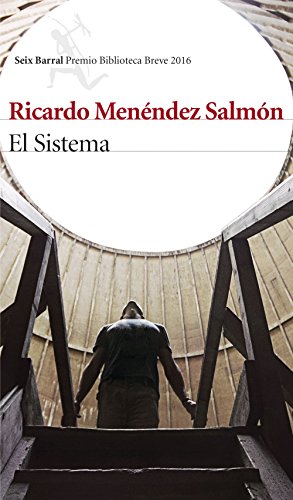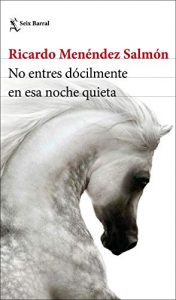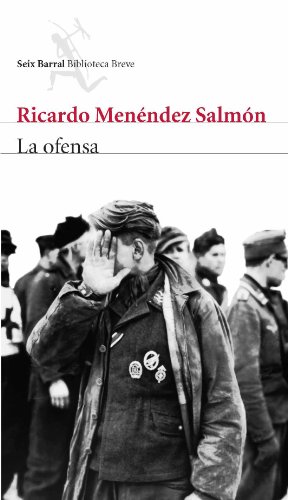There is some literary synergy between Ricardo Menendez Salmon y Victor of the Tree. At least in some of his novels. Because in both, each in his own style, we enjoy deep plots cleverly disguised as successful genres.
It is true that suspense or noir are scenarios that can arouse even existentialist approaches around the deepest psychological tension or even crime with its own connection with life and death.
Although in the case of Ricardo Menéndez, with an already more extended literary career, a specific genre has not been enough for him to overturn all those ideas of the prolific writer. In many of other novels we find this treatment of essential themes such as love, death, absences ... and in different scenarios that also place him with a writer of historical fictions.
An all-round author to enjoy in his already extensive bibliography of around twenty books. One of those shelf fixtures in any self-respecting current library.
Top 3 recommended novels by Ricardo Menéndez Salmón
The system
Being a willing reader of all kinds of dystopias that always assure a science fiction point where the suggestive action moves, filled with habitual reflective grounds (even more so in a writer with a degree in philosophy such as Ricardo), this novel had won me over beforehand.
Then there is the treatment of dystopia, the usual and necessary justifications for having reached the reference point of the novel. Convincing is not enough because Ricardo wisely concentrates everything on the ideological drift capable of capitalizing on any change, no matter how abysmal. Everything else is a very enjoyable adventure and metaphysical projection that is devoured with relish from its fantastic background. In a future era, our planet has become an archipelago in which two forces coexist: the Own, subjects of the islands, and the Outsiders, banished after ideological and economic disputes.
Within the System there is an island called Reality, where the Storyteller monitors the probable appearance of the enemies of order. But as it cracks and the sentinel loses his certainties, the Narrator becomes a dangerous man, an uncomfortable thinker.
Combining the intimate with the political, privacy with History, El Sistema looks into the dystopian, allegory, metaphysical research and apocalyptic reading. In its pages there is a place for issues such as the question of identity, the fear of the Other, the search for a story that allows us to interpret the complexity of the world, and even the possibility of a post-human time.
Do not go meekly into that quiet night
Every writer has his personal debts, his own story that in some way he is telling in his books, in a broken way, atomized into characters or situations.
Until many of them, the writers devoted to their work, end up moving to their fictional world and become protagonists, exhibiting even more strongly their vision of the world loaded from their notions, impressions and experiences. Always under the guise of the most appropriate plot, this book begins in the room where a man is dying while his son, the writer Ricardo Menéndez Salmón, searches the last landscape that his father has seen for a revelation that may not exist. Do not go meekly into that quiet night it is an offering, an elegy, and an expiation; the attempt to rebuild an existence that is moving towards maturity, that of the one who writes, through an existence that has been hopelessly exhausted, and that of the one who gave him his life.
Like Philip Roth in Equity shares as Amos Oz en A story of love and darknessas Peter Handke en Unrelenting misfortune, Ricardo Menéndez Salmón dives into the waters of family history to explain himself through the lights and shadows of his father. The result is a text that covers the rooms of heroism and misery, goodness and disdain, joy and disease, and that gives us a document of contained emotion and ardent honesty.
Offense
In some novel by Ruiz Zafon I think I remember reading how a protagonist exposes his intention to leave the past behind and, if he could, his previous skin and his memories. But it is not possible to mutate so easily or to remove the brain or even the outermost layer of the dermis, where the touch and its sensations of our worst days came.
If the body is the border between us and the world, how can the body defend us from horror? How much pain can a man bear? Can love save the hopeless? These are some of the issues implicit in The Offense, the story of Kurt Crüwell, a young German tailor whom the outbreak of World War II will push to live an experience as radical as it is unusual.
A metaphor for a tragic century, Kurt's existence will be transformed into a dizzying journey to the roots of Evil, identified in this intense novel with the worldview of Nazism, but also a moving example of the ability of love to atone for the pain of the world. and in a very original reflection on the greatness and misery of the human body.



